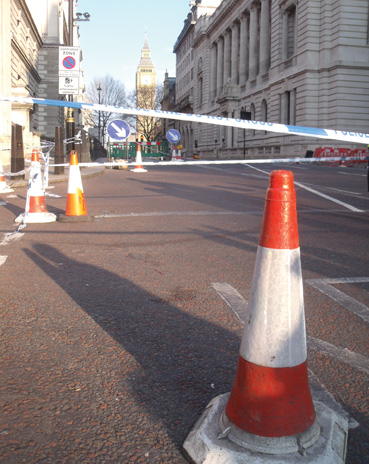The public response, like that of the police who reacted promptly to each 2017 UK terror attack, was impressive, the former Independent Reviewer of Terrorism Legislation, David Anderson QC said in a report on MI5 and police and the terror attacks in London and Manchester between March and June. “Manchester came together in a moving demonstration of solidarity. The international headline which described London as “reeling” missed the mark: resilient, or resolute, would have been closer. Rather than divide the country, these shocking crimes united decent people of all races and religions in sympathy for the victims and condemnation for the attackers.”
However, as a reflection of a rise in the sheer number of threats, despite the fact that most attacks continue to be successfully disrupted, the report spoke of countering terror as an ‘increasingly high-volume business, where success and failure depend on tiny margins’.
He described the counter-terrorism fundamentals as ‘sound’ in the UK, but warned of ‘a worsening threat background’, “as shown by the 20 plots thwarted over the past four years, seven of them since the Westminster attack in March. Some completed attacks must unfortunately be expected.” Given readily-available weapons, as in the cases of Westminster Bridge and Finsbury Park, ‘not everything can be stopped’, according to the report. “Since we do not live in a surveillance state, or anything approaching it, determined attackers will always have a chance of getting through.” As for the London Bridge and Borough Market attackers, the report said an ‘unpalatable lesson’ was that ‘even priority subjects of interest in respect of whom sound decisions are being made by MI5 and police may retain the ability to conceal their attack-planning from the authorities’.
David Anderson covered nine classified security services and police internal reviews, on handling of intelligence before the attacks at Westminster Bridge, Manchester Arena, London Bridge and Finsbury Park. Three of the six attackers were on MI5’s radar; he said that it was ‘conceivable that the Manchester attack in particular might have been averted had the cards fallen differently’. He did make a point on the limits of intelligence: “Tip-offs, whether from friends, family or members of the public, are indeed a vital element of successful intelligence and policing,” but ‘intelligence is always imperfect’. Frequently, he said, MI5 staff have ‘to choose which of a number of current and potentially deadly threats is most deserving of scarce investigative resource’.
As for change arising from the reviews, after the shock of four deadly attacks inside months, he pointed to a decision to allow intelligence-derived knowledge to be shared more widely beyond intelligence circles, to local non-specialist-counter-terror police, that he said ‘marks a significant cultural change’.
For the 61-page document in full visit https://www.gov.uk/government/publications/attacks-in-london-and-manchester-between-march-and-june-2017. The report also lists recent Islamist terrorism convictions; more detail may be found on the website of the Counter-Terrorism Division of the Crown Prosecution Service (CPS).
For police and MI5 comment on the report, visit the MI5 website.
Photo by Mark Rowe; the cordon looking towards the Houses of Parliament, after the Westminster Bridge terror attack of March 22.










